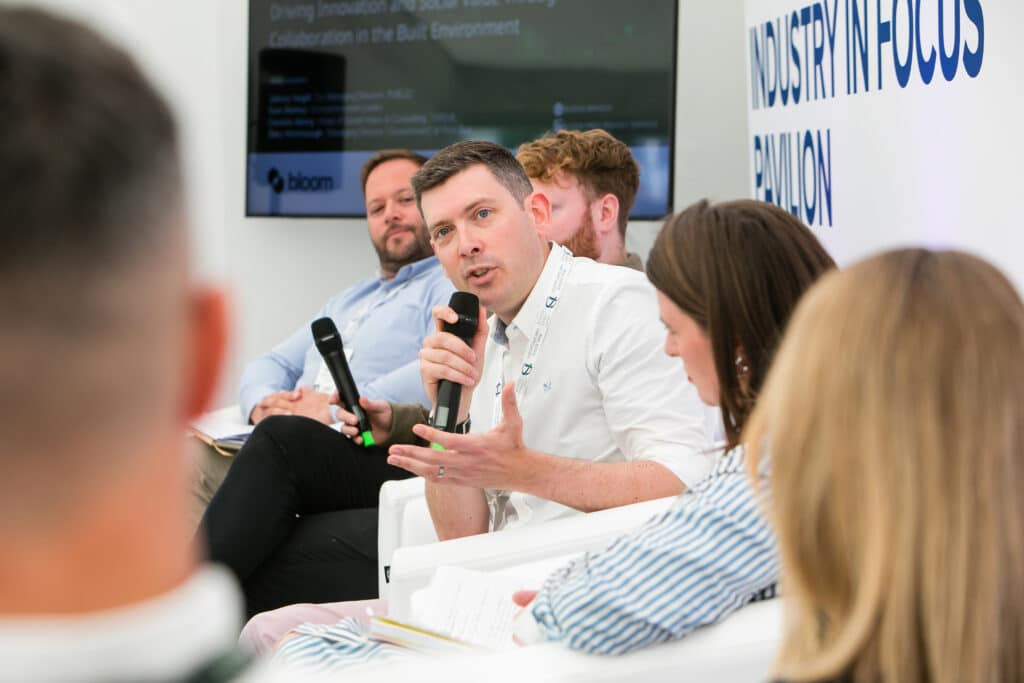Sign-up here to receive the monthly iED bulletin
Sign-up here to receive the monthly iED bulletin

On Monday 3rd November, the Social Impact Investment Advisory Group (SIIAG) published its final report: Mobilising the impact economy as partners in national renewal. The report signals a decisive opportunity for economic development professionals and local government leaders across the UK. In an era defined by profound change and constrained public finances, this report delivers a clear, practical roadmap to achieve meaningful, scalable, and sustainable renewal in our communities and local economies.
The report, commissioned by HM Treasury and DCMS, is a powerful invitation to move beyond ad-hoc collaboration to a system-wide strategic partnership with the UK’s impact economy. For those focused on delivering local economic strategies and devolution deals, the core finding is this: a shift within the public sector from behaving as the sole funder of discrete projects to being a strategic catalyst and partner would release huge resources.
The £100 billion plus opportunity
The impact economy means the diverse ecosystem of purposeful organisations and capital intentionally focused on delivering positive, measurable social and environmental results alongside financial aims. This includes social enterprises, large foundations, institutional investors, and others who are working to create a stable, prosperous UK.
This sector is already a significant force, stewarding an estimated £106 billion, with at least £42 billion already focused on key national missions like affordable housing, clean energy, and better skills outcomes. This capital and the organisations behind it have an impressive track record of innovating and scaling new solutions to entrenched needs. The invitation to place leaders is to mobilise the creativity of grassroots practitioners to tackle the challenges that hold people and places in poverty, backed by the scaled capital needed to make change last.
The key to unlocking this potential is adopting a ‘mobilisation mindset’. This cultural shift means using public capital (from commissioning budgets to infrastructure funds) more intentionally through a co-design approach to attract external investment, share delivery risk, and scale solutions that improve real outcomes for people. This approach offers inherently better value for the taxpayer: in innovative yet proven models like Social Outcomes Partnerships, the public sector pays only for successful outcomes, with private and philanthropic capital taking the upfront delivery risk.
A blueprint for better partnerships
The report’s recommendations offer direct solutions to the perennial funding instability and complex partnership challenges faced by economic development teams.
The central recommendation of the report is the creation of an Office for the Impact Economy. This is intended to dismantle Whitehall complexity and provide a clear ‘front door’ for new and existing impact economy partners to engage with government.
To embed a mobilisation mindset, the report recommends that a ‘match first / leverage approach’ should become a core principle of policy design. Specific references are made to applications in local and regional government, with place leaders encouraged to explicitly outline how they will partner with the impact economy in their Local Growth Plans – including engaging with Local Government Pension Scheme (LGPS) funds, philanthropic partners, and social impact investors.
Recognising that local authorities may require support to implement this and other recommended actions, the report recommends that the government seed fund a ‘Local Investment Enablement Facility’ (LIEF). This LIEF would act as a hub of reliable information, expert advice, and practical templates to equip local government officers and place leaders to work confidently with the impact economy. One aim for this facility would be to reduce duplication and accelerate the transfer of knowledge from pioneer places to emerging areas.
To move swiftly from theory to action, the SIIAG identified five flagship opportunities, building on the launch of the £500 million Better Futures Fund. Two of these directly address core place-based economic challenges:
Funding place-based renewal
For local economic development professionals, embracing the mobilisation mindset means leading the way in designing interventions that actively look to mobilise purpose-driven capital to create resilient, long-term impact. The UK is a world leader in this field, though with global competition for purpose-driven capital on the rise, there is no guarantee that will continue to be the case without leadership nationally and locally.
Whatever happens in central government in response to the report, by embracing the SIIAG’s invitation to deeper partnerships, place leaders can mobilise new resources, restore agency to individuals and communities, and ensure that local vision is backed by the scale of capital needed to deliver truly lasting change.
Sam Markey is the Founder and Managing Director of Recurve and a Senior Associate at the Impact Investing Institute. Recurve specialises in empowering place leaders to lead beyond boundaries and mobilise purpose-driven capital, and is an Awards Partner at the iED Annual Awards 2025, sponsoring the Collaborative Initiative of the Year category. Sam was the lead author of the Social Impact Investment Advisory Group’s final report, Mobilising the impact economy as partners in national renewal.
The Social Impact Investment Advisory Group (SIIAG) was established in January 2025 by HM Treasury (HMT) and the Department for Culture, Media and Sport (DCMS) to strengthen collaboration between government, the impact economy, and civil society. Its mandate was to advise on effective ways for government to mobilise impact capital for public good. SIIAG members included: Dame Elizabeth Corley (Schroders), Kieron Boyle OBE (Impact Investing Institute), Michele Giddens OBE (Bridges Fund Management), Pete Gladwell (Legal and General), and Robert Pollock (Cambridge City Council).
Would you like to write for the iED? As part of iED individual and organisation membership, ALL members have the opportunity to publish articles on our website. We are now seeking ideas for contributions from members, including those in our Early Career Network. These can be around any aspect of economic development, insights on work you are undertaking and project successes you would like to share, or any viewpoint you would like to express. If you have an article proposal please email admin@ied.co.uk.